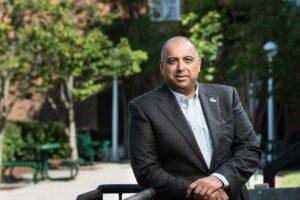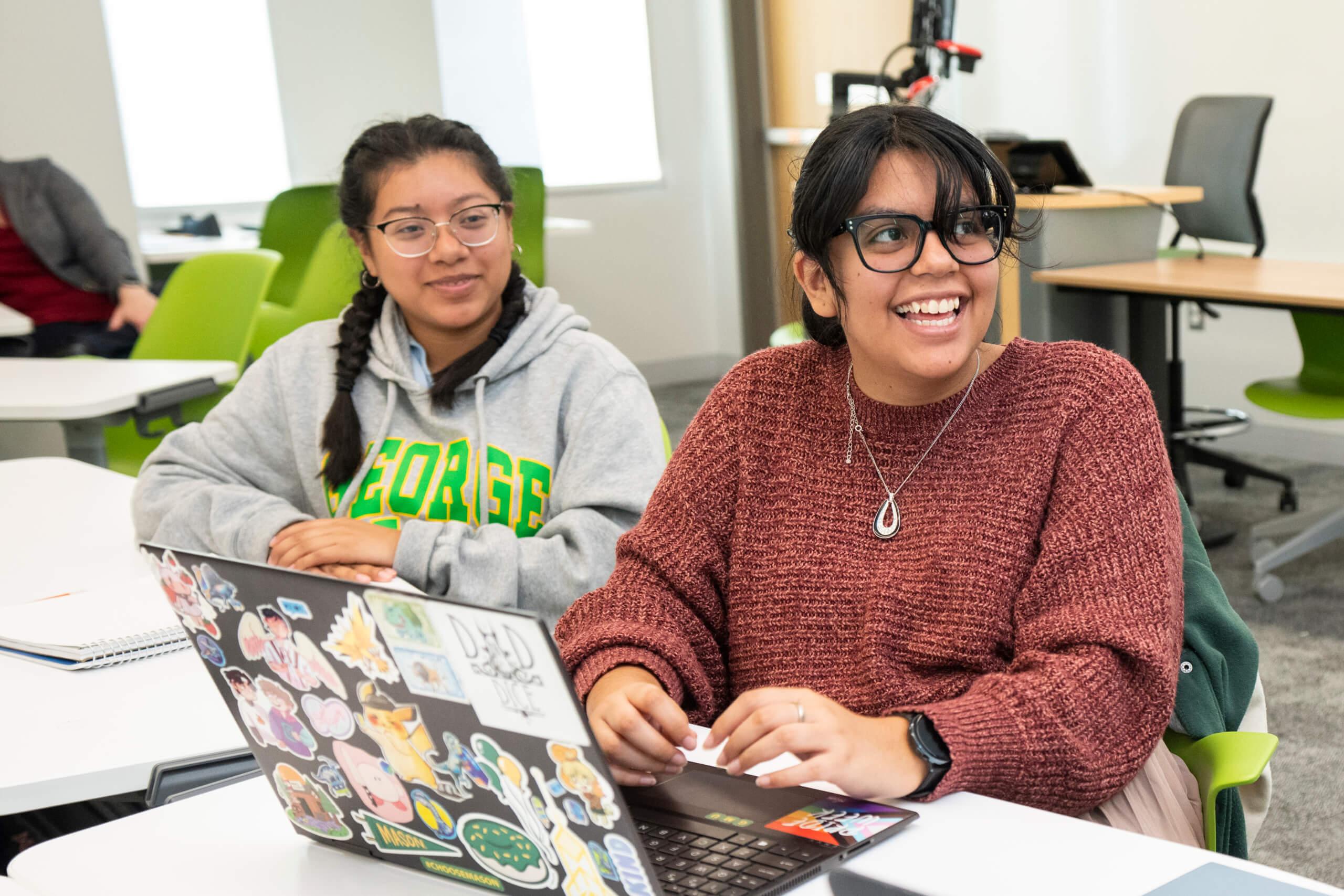
The Institute for Immigration Research (IIR) will now have more resources to produce scholarly research about the impact of immigrants on the United States, thanks to a generous donation from Sumeet Shrivastava, MBA ’94. The gift provides post-doctoral support for three years through the creation of the Shrivastava Family Graduate Fellowship in Immigrant Research.
As the fellow and other graduate students working with the IIR complete their programs and move into their careers (the last two fellows of the institute are now tenure-track professors), they continue to add to the collective body of research and expand Mason’s reach.
“The training of the graduate students is so important,” says James Witte, IIR director. “They help us grow our network once they leave here. This is where the gift is really going to have an impact.”
The work of the IIR hits close to home for Shrivastava, whose father came to the U.S. in 1970 from India to study at the University of North Carolina. Shrivastava joined his father a year later, in 1971, when he was five years old. He faced a sometimes unwelcoming community.
“I remember sometimes having to run home from the bus stop,” said Shrivastava. “I was brown-skinned and could hardly speak English, and you would get beat up and made fun of for that.”
Shrivastava’s father arrived with the beginning wave of non-European immigrants following the Immigration Act of 1965, which removed national origin quotas that favored immigrants from Europe. The small immigrant population of Indian descent lived in communities without the infrastructure needed to support them.
After Shrivastava’s father graduated, they moved to Fairfax, Virginia amongst a larger immigrant community, and his father started a successful IT business. He was named an Ernst & Young Entrepreneur of the Year for the region and a Small Business Association (SBA) National Small Business Person of the Year. He was appointed as a senior advisor to the SBA administrator during the Clinton administration.
Shrivastava’s father worked to support the immigrant community, leading a commission that reported to the Clinton White House on how to make minority and small business contracting more effective. He also spearheaded the effort to raise the money to build a temple for the local Indian community, a multi-million dollar effort that today is still one of the largest temples in the area.
This legacy helped inspire Shrivastava’s gift.
“Dad passed away in June of 2017,” said Shrivastava. “That began us thinking about the legacy, family, and all the impact that he and Mom had, and realizing that we were not doing as much in this generation as the first-generation immigrants. That drove us to see if we could go focus on the things that made Dad’s career what it was and could hopefully help others.”

Shrivastava knew Mason would be a perfect fit. His father had been an adjunct professor at Mason and his company had hired many of his students. He was an early member of Mason’s Diversity Advisory Board (now the University Life Advisory Board). Shrivastava earned his MBA from Mason, is the immediate past president of the Alumni Association, and serves as vice chair on the George Mason University Foundation Board of Trustees. The opportunity presented in supporting Mason’s IIR provided the perfect intersection of STEM, entrepreneurship, higher education, and immigration to honor Shrivastava’s father.
“We are deeply grateful to Sumeet for enabling the IIR to teach the next generation of immigration scholars,” noted College of Humanities and Social Sciences dean Ann Ardis, “As he honors his past and his parents’ legacies, he is moving this work forward into the future. The impact will be felt for years to come.”
Shrivastava’s gift comes as the IIR celebrates its 10th anniversary and the support of its lead donor, Diane Portnoy. In its first decade, research produced by the IIR has been cited in scholarly journals and major media outlets and used by academics, politicians, and government agencies to influence immigration policy. Shrivastava’s gift ensures the same level of research and impact in the future.
This article was originally published in the CHSS Annual Report 2021-22 (PDF).
